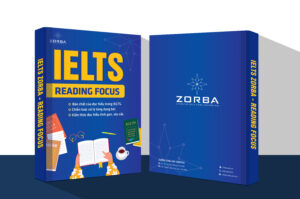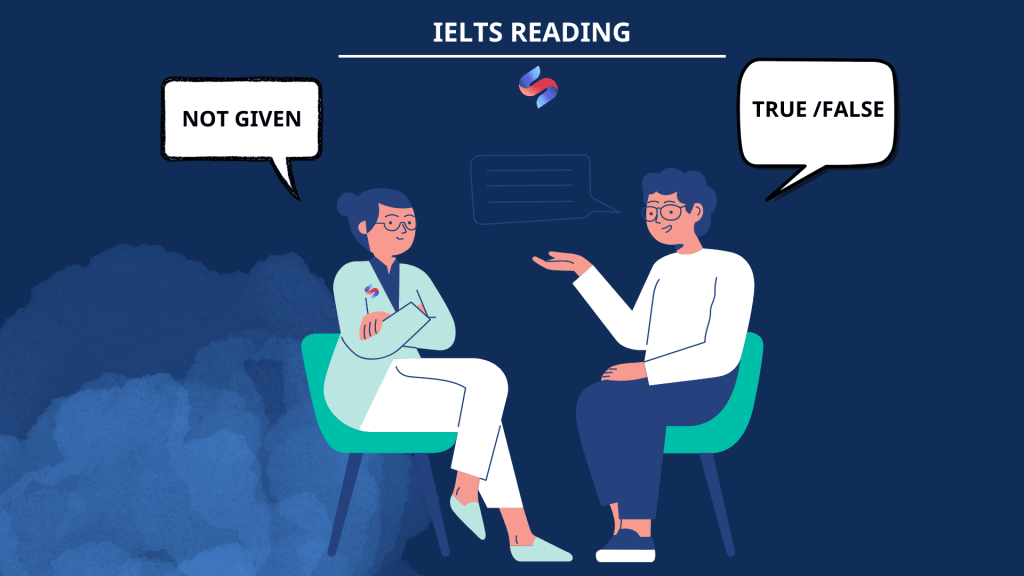Chuyên mục nâng cấp từ vựng được chắt lọc từ bộ Cambridge – IELTS Vocab Booster
Học từ vựng rất quan trọng nhưng nhiều học sinh thường ngại vì chưa biết cách học và chọn sai tài liệu.
Các sách học từ vựng được lan truyền thường lan man không đúng trọng tâm, vì vậy cô Ngân đã rất tâm huyết soạn thảo các từ vựng chắt lọc từ bộ Cambridge thần thánh, đánh trúng trọng tâm các từ vựng thường xuất hiện trong bài thi IELTS để các sĩ tử luyện tập hiệu quả trong thời gian ngắn nhất.
Chuyên mục mỗi ngày 1 bài từ vựng được trích từ 1 Passage của Reading trong bộ Cambridge bắt đầu từ Cambridge 7, trong đó bao gồm giải thích từ vựng kèm ví dụ minh họa và phần bài tập cùng đáp án để các bạn thực hành và tự check.
Chắc chắn các bạn sẽ thấy trình của mình tăng cấp lúc nào không hay.
Chương 1: CAM 7
TEST 1: READING PASSAGE 1 – LET’S GO BATS
Bước 1: Làm lần 1 như khi đi thi.
You should spend about 20 minutes on Questions 1-13, which are based on Reading Passage 1 below.
Let’s Go Bats
A Bats have a problem: how to find their way around in the dark.They hunt at night, and cannot use light to help them find prey and avoid obstacles. You might say that this is a problem of their own making, one that they could avoid simply by changing their habits and hunting by day. But the daytime economy is already heavily exploited by other creatures such as birds. Given that there is a living to be made at night, and given that alternative daytime trades are thoroughly occupied, natural selection has favoured bats that make a go of the night-hunting trade. It is probable that the nocturnal trades go way back in the ancestry of all mammals. In the time when the dinosaurs dominated the daytime economy, our mammalian ancestors probably only managed to survive at all because they found ways of scraping a living at night. Only after the mysterious mass extinction of the dinosaurs about 65 million years ago were our ancestors able to emerge into the daylight in any substantial numbers.
B Bats have an engineering problem: how to find their way and find their prey in the absence of light. Bats are not the only creatures to face this difficulty today. Obviously the night-flying insects that they prey on must find their way about somehow. Deep-sea fish and whales have little or no light by day or by night. Fish and dolphins that live in extremely muddy water cannot see because, although there is light, it is obstructed and scattered by the dirt in the water Plenty of other modern animals make their living in conditions where seeing is difficult or impossible.
C Given the questions of how to manoeuvre in the dark, what solutions might an engineer consider? The first one that might occur to him is to manufacture light, to use a lantern or a searchlight. Fireflies and some fish (usually with the help of bacteria) have the power to manufacture their own light, but the process seems to consume a large amount of energy. Fireflies use their light for attracting mates.This doesn’t require a prohibitive amount of energy: a male’s tiny pinprick of light can be seen by a female from some distance on a dark night, since her eyes are exposed directly to the light source itself. However using light to find one’s own way around requires vastly more energy, since the eyes have to detect the tiny fraction of the light that bounces off each part of the scene. The light source must therefore be immensely brighter if it is to be used as a headlight to illuminate the path, than if it is to be used as a signal to others. In any event, whether or not the reason is the energy expense, it seems to be the case that, with the possible exception of some weird deep-sea fish, no animal apart from man uses manufactured light to find its way about.
D What else might the engineer think of? Well, blind humans sometimes seem to have an uncanny sense of obstacles in their path. It has been given the name ‘facial vision’, because blind people have reported that it feels a bit like the sense of touch, on the face. One report tells of a totally blind boy who could ride his tricycle at good speed round the block near his home, using facial vision. Experiments showed that, in fact, facial vision is nothing to do with touch or the front of the face, although the sensation may be referred to the front of the face, like the referred pain in a phantom limb.The sensation of facial vision, it turns out, really goes in through the ears. Blind people, without even being aware of the fact, are actually using echoes of their own footsteps and of other sounds, to sense the presence of obstacles. Before this was discovered, engineers had already built instruments to exploit the principle, for example to measure the depth of the sea under a ship. After this technique had been invented, it was only a matter of time before weapons designers adapted it for the detection of submarines. Both sides in the Second World War relied heavily on these devices, under such codenames as Asdic (British) and Sonar (American), as well as Radar (American) or RDF (British), which uses radio echoes rather than sound echoes.
E The Sonar and Radar pioneers didn’t know it then, but all the world now knows that bats, or rather natural selection working on bats, had perfected the system tens of millions of years earlier; and their radar’ achieves feats of detection and navigation that would strike an engineer dumb with admiration. It is technically incorrect to talk about bat ‘radar’, since they do not use radio waves. It is sonar. But the underlying mathematical theories of radar and sonar are very similar; and much of our scientific understanding of the details of what bats are doing has come from applying radar theory to them.The American zoologist Donald Griffin, who was largely responsible for the discovery of sonar in bats, coined the term ‘écholocation’ to cover both sonar and radar, whether used by animals or by human instruments.
- Giải thích từ vựng
- Prey (n) /preɪ/ con mồi
Eg: A hawk hovered in the air before swooping on its prey.
The young deer are ideal prey for the leopard.
Prey on (v) săn mồi
Eg: Lions prey on huge herds of wildebeest and zebra.
- Exploit (v) /ɪkˈsplɔɪt/ khai thác
Eg: The increased globalization of the commodity trading business is something we must exploit.
Exporters can currently exploit the favourable exchange rates.
- Given that: Với việc ….. là
Eg: Given that he is a famous doctor, he definitely makes a lot of money every year.
Given that he was not taking good care of his wife and children, he took the children away and left the divorce form waiting for him to sign.
- Nocturnal (a) /nɒkˈtɜː.nəl/ (thuộc) đêm; về đêm
Eg: They are nocturnal creatures, which helps them avoid predators such as hawks and owls.
- Make a go of sth: cố gắng làm điều gì, cố gắng để điều gì đó thành công
Eg: She’s really making a go of her new antique shop.
I can’t see him ever making a go of accountancy.
- Substantial (a) /səbˈstæn.ʃəl/ quan trọng, trọng yếu, lớn lao
Eg: The findings show a substantial difference between the opinions of men and women.
She inherited a substantial fortune from her grandmother.
The first draft of his novel needed a substantial amount of rewriting.
- Obstruct (v) /əbˈstrʌkt/ cản trở, gây trở ngại
Eg: After the earthquake many roads were obstructed by collapsed buildings.
Her view of the stage was obstructed by a pillar.
- Scattered (a) /ˈskæt̬·ərd/ rải rác, thưa thớt, lưa thưa
Eg: There will be scattered showers throughout the afternoon.
Her family are scattered around the world.
- Prohibitive (a) /prəˈhɪb.ɪ.tɪv/ quá đắt đỏ, tốn kém
Eg: Green groups have been unable to challenge instances of pollution in court because of prohibitive costs.
Collocation
- prohibitive costs/fees/rates
- be prohibitive for sb
- Manoeuvre (v) /məˈnuː.vər/ diễn tập, vận động/ di chuyển (theo kế hoạch)
Eg: Loaded supermarket trolleys are often difficult to manoeuvre.
- Pinprick (n) /ˈpɪn.prɪk/ một lượng rất nhỏ/ một diện tích nhỏ
Eg: The darkness was broken by the odd pinprick of light.
- Be exposed to: bị phơi ra, phơi bày ra
Eg: It is feared that people living near the power station may have been exposed to radiation.
- Vastly (adv) /ˈvæs·tli/ rộng lớn, mênh mông, bao la; rất nhiều
Eg: I think the original movie was vastly superior to the remake.
I’m a vastly different person now.
- Bounce (off) (v) /baʊns/ nảy lên, nhảy vụt ra
Eg: The ball bounced off the goalpost and into the net.
- Weird (a) /wɪəd/ kỳ quặc, kỳ dị, khác thường, khó hiểu
Eg: He was sitting alone by a window with a weird contraption on the table in front of him.
Một số từ đồng nghĩa:
-
- strange She’s a strange girl.
- odd I always thought there was something a bit odd about her.
- bizarre I had a really bizarre dream last night.
- Apart from (adv) : ngoài ….ra
Eg: Apart from the low salary, it’s not a bad job.
- Uncanny (a) /ʌnˈkæn.i/ kỳ lạ, huyền bí
Eg: It was uncanny the way that she always knew what he was thinking.
She bears an uncanny resemblance to her father’s best friend.
uncannily (adv)
uncanniness (n)
- Be/have nothing to do with: không có liên hệ gì đến ai/ cái gì
Eg: I wish he wouldn’t offer advice on my marriage – it’s nothing to do with him.
- Phantom (n) /ˈfæn.təm/ ảo ảnh, ảo tưởng, không có thực
Eg: Although she had to have her leg amputated, she still feels as though she’s got a phantom limb.
- Limb (n) /lɪm/ chi, chân tay
Eg: The accident victims mostly had injuries to their lower limbs.
Amputation of the limb is really a last resort.
- (as) it turns out: hóa ra (được phát hiện ra một cách bất ngờ)
Eg: It turns out that she had known him when they were children.
It turned out that she was a friend of my sister.
- Rely on (phrasal verb) dựa vào, phụ thuộc vào
Eg: Volunteers are trying to call for help from organizations and individuals as the charity fund relies entirely on public donations and support.
The success of this project relies on everyone making an effort.
- Pioneer (n) /ˌpaɪəˈnɪər/ người đi tiên phong, người đi đầu (trong một công cuộc gì)
Eg: He was a pioneer in big-band jazz.
He is known as a pioneer in veterinary surgery.
- Pe responsible for /rɪˈspɒn.sə.bəl/ chịu trách nhiệm/ có trách nhiệm làm gì
Eg: Paul is directly responsible for the efficient running of the office.
Her department is responsible for overseeing the councils.
- Navigate (v) /ˈnæv.ɪ.ɡeɪt/ lái (tàu, thuyền, máy bay…), điều hướng
Eg: Sailors have special equipment to help them navigate.
Even ancient ships were able to navigate large stretches of open water.
navigation (n)
- Luyện tập
Bài 1: Chọn từ trong khung để hoàn thành các câu bên dưới
| make a go | prey | prohibitive | prey | scattered |
| obstructing | given | nocturnal | substantial | exploiting |
- Hawks …………………………………. on rodents and small birds.
- The lion will often stalk its …………………………………….. for hours.
- …………………………. that he’s had six months to do this, he hasn’t made much progress.
- We stood and admired Shanghai’s …………………………………. skyline.
- The Green Party have called for a …………………………………….. reduction in the emission of greenhouse gases by the UK.
- He got five years in prison for withholding evidence and ………………………. the course of justice.
- It has become increasingly difficult for independent operators to ………………………. of it.
- We have a lot of knowledge and experience in this department that we are not currently ……………………. fully.
- Rents in the area are …………………………… for many households.
- The smoke cleared to reveal debris …………………………… across the street.
Bài 2: Chọn đáp án đúng để điền vào chỗ trống
- The river was alive with ………………………… of light. A. pinpricks B. preys
- The other directors are trying to ……………………………. her into resigning. A. obstruct B. manager
- He wasn’t even trying to score – the ball just …………………….. off the jammy beggar’s head into the goal. A. exploited B. bounced
- That’s …………………………….. – I thought I left my keys on the table but they’re not there. A. prohibitive B. weekend
- This candidate is ………………………. more experienced than the others. A. vastly B. vast
- In the evening he likes to read books and articles that have ……………………….. to do with his work. A. much B. nottingham
- …………………………………… you and me, I don’t think there was anyone there under 30. A.adapt from B. apart form
- All the clocks had stopped and the silence was ……………………………… . A. uncanny B. weird
- If it continues to bleed, you may have to apply a tourniquet to the ………………………………. A. pinprick B. limb
- Be sure your child wears sunscreen whenever she’s ……………………. to the sun. A. scattered B. exposed
- Although she grew bigger, she later discovered it was a …………………………. pregnancy. A.phantom B. limb
- I’m ……………………………………. the garage to fix the car by tomorrow. A.relying on B. preying on
- We had to ………………………….. several flights of stairs to find his office. A. bounce B. navigate
- Our practice is ………………………………. for about five thousand patients in this part of Leeds A.substantial B. responsible
- He thought he would win the scholarship easily but as it ……………………………….. he couldn’t. A.turned out B. turns out
- She later became a ………………………………. of education for women. A. pioneer B. phantom
Các bạn chuyển qua TEST 2
ĐÁP ÁN.
Bài 1:
1.prey 2. prey 3. given 4. nocturnal 5. substantial
- obstructing 7. make a go 8. exploiting 9. prohibitive 10.scattered
Bài 2:
1.A 2. B 3. B 4. B 5. A
- B 7. B 8. A 9. B 10. B
11. A 12. A 13. B 14. B 15.A















